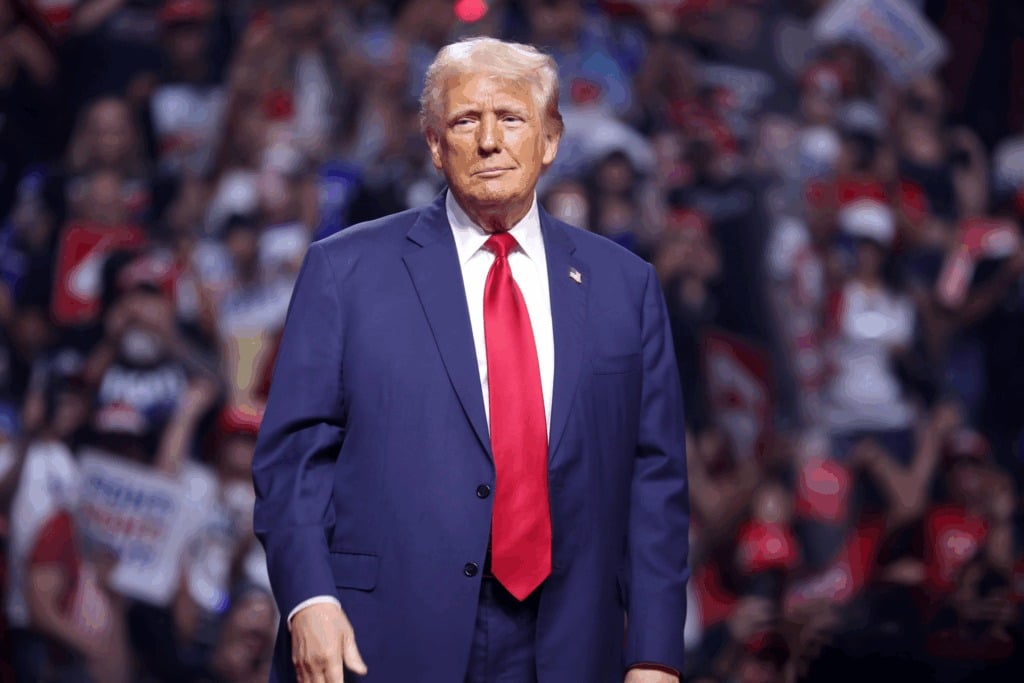Veterans Day should be renamed, according to Donald Trump, who said that Americans need “to start celebrating our victories again.”
Trump Says He’ll Rename Veterans Day and VE Day if Re-Elected
In a late-night post on Truth Social Thursday, former President Donald Trump announced that he plans to rename Veterans Day as “Victory Day for World War I,” saying it’s time the U.S. starts “celebrating our victories again.”

“We won both Wars — no one came close to us in strength, bravery, or military brilliance — but we never celebrate,” Trump wrote. “That’s because we no longer have leaders who know how to do it! We’re going to start celebrating our victories again!”
Trump didn’t stop there. He also said he would change the name of Victory in Europe Day — observed on May 8 to mark the Allied defeat of Nazi Germany — to “Victory in World War II Day.”
“We did more than any other country, by far, to achieve victory in World War II,” Trump said, arguing that the name change is about “setting the record straight.”
While Trump’s comments may energize his core supporters, many Americans are confused — especially by the idea of renaming Veterans Day.
Veterans Day, first established as Armistice Day in 1919 to mark the end of World War I, was expanded in the 1950s to honor veterans of all U.S. conflicts — including World War II, Korea, Vietnam, the Gulf War, and more recent wars in Iraq and Afghanistan. It became a federal holiday in 1968 and has long been a solemn day to honor the service and sacrifice of American veterans across generations.
As for May 8 — widely known as Victory in Europe Day — it’s not an official U.S. holiday. Although World War II ended in Europe on that date in 1945, the war didn’t fully end until Japan surrendered in September after the U.S. dropped atomic bombs on Hiroshima and Nagasaki.
Trump’s claim that America “did more than any other country” to win World War II is also likely to stir controversy overseas, particularly in Russia. The Russian government refers to the conflict as the “Great Patriotic War” and emphasizes the staggering toll it took on the Soviet Union — with an estimated 9 million soldiers and 19 million civilians killed on the Eastern Front alone.
Meanwhile, the United Kingdom endured heavy losses and widespread destruction during Nazi Germany’s Blitz bombing campaign.